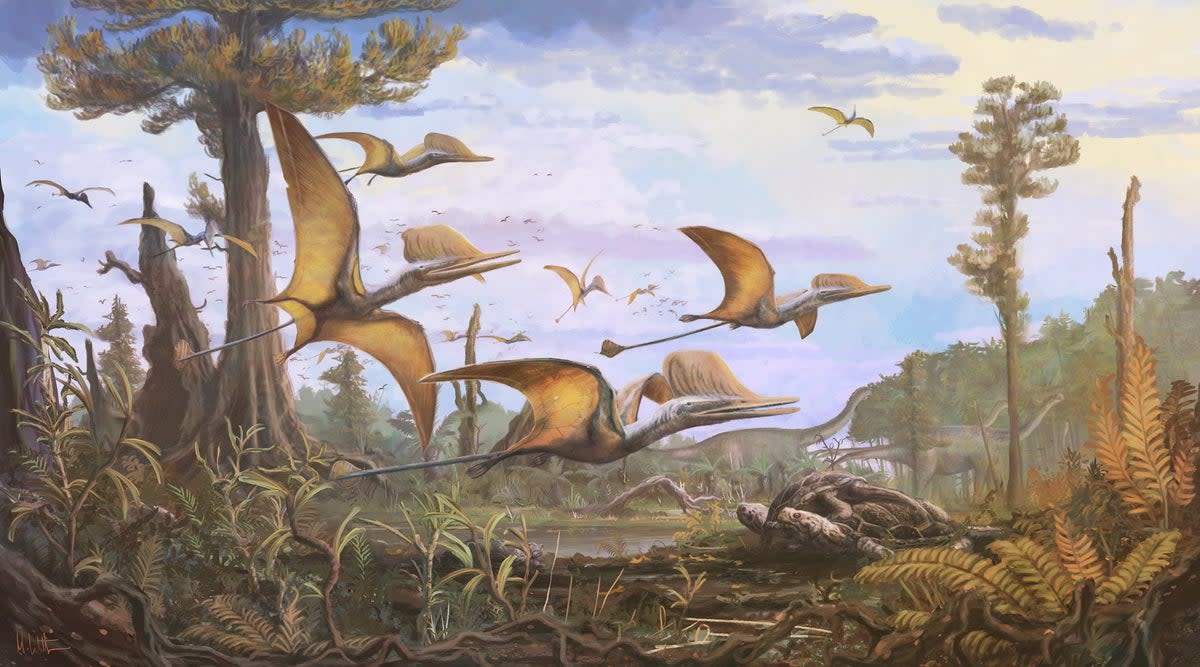Avocado farmer’s discovery in Australian outback is new species of pterosaur, scientists say

An Australian avocado farmer found the fossilized remains of a pterosaur in the Australian outback that scientists now say is a new species of the prehistoric flying reptile that lived alongside the dinosaurs.
Kevin Peterson, who reportedly also works as a curator at the Kronosaurus Korner Museum in Richmond, first discovered bones of the reptile in 2021.
Paleontologists announced on Wednesday that the bones found in central Queensland were from a previously unknown species of pterosaur, a giant winged reptile that lived 100 million years ago.
Mr Petersen, who has a deep interest in paleontology, found the bones while fossicking in the fossil-rich area where a 100-million-year-old pliosaur, an aquatic carnivorous reptile, was discovered in 1989.
“I was checking another fossil and walking back to the car when I noticed bones sticking out of the ground,” Mr Peterson said in a statement.
'Fearsome': New Pterosaur Species Discovered With 15-Foot Wingspan: Pterosaurs were a group of flying reptiles that lived during the age of dinosaurs. https://t.co/Y1cEYNQj6B pic.twitter.com/A90I6yfXEQ
— 🇺🇲NahBabyNah🇺🇲 (@NahBabyNah) June 12, 2024
Researchers from Curtin University in Western Australia identified the fossilised bones after they were initially discovered by Mr Peterson.
“This discovery is an exciting boost for science, education, and regional tourism. I’m thrilled that my discovery is a new species, as my passion lies in helping shape our modern knowledge of prehistoric species,” Mr Peterson said on Wednesday.
Here's the second new pterosaur species of 2024: Torukjara bandeirae, a tapejarid from the "Pterosaur Graveyard Site" (Southern Brazil)!!
Here's a paleoartistic reconstruction of the new species (front) coexisting with Caiuajara in the Cauiá Desert, by the wonderful @MF_gadelha pic.twitter.com/3TczImp48J— Rodrigo V. Pêgas 🦖🏳️🌈 (@pegasaurus_42) June 11, 2024
The remains have been classified as Haliskia peterseni, a new anhanguerian pterosaur. Anhanguerians were known to inhabit regions that are now part of Brazil, England, Morocco, China, Spain, and the United States.
“With a wingspan of approximately 15ft, Haliskia would have been a fearsome predator around 100 million years ago when much of central western Queensland was underwater,” Adele Pentland from the Curtin’s School of Earth and Planetary Sciences who led the research team said in a statement.

 Yahoo News
Yahoo News 
